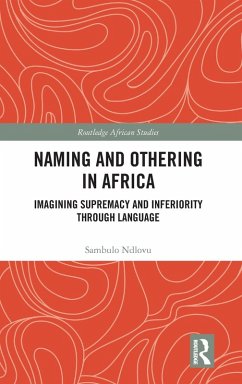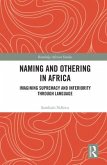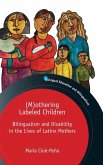This book examines how names in Africa have been fashioned to create dominance and subjugation, inclusion and exclusion, others and self. Drawing on global and African examples, but with particular reference to Zimbabwe, the author demonstrates how names are used in class, race, ethnic, national, gender, sexuality, religious and business struggles in society as weapons by ingroups and outgroups. Using Othering theory as a framework, the chapters explore themes such as globalised names and their demonstration of the other; onomastic erasure in colonial naming and the subsequent decoloniality in African name changes; othering of women in onomastics and crude and sophisticated phaulisms in the areas of race, ethnicity, nationality, disability and sexuality. Highlighting social power dynamics through onomastics, this book will be of interest to researchers of onomastics, social anthropology, sociolinguistics and African culture and history.
Hinweis: Dieser Artikel kann nur an eine deutsche Lieferadresse ausgeliefert werden.
Hinweis: Dieser Artikel kann nur an eine deutsche Lieferadresse ausgeliefert werden.








